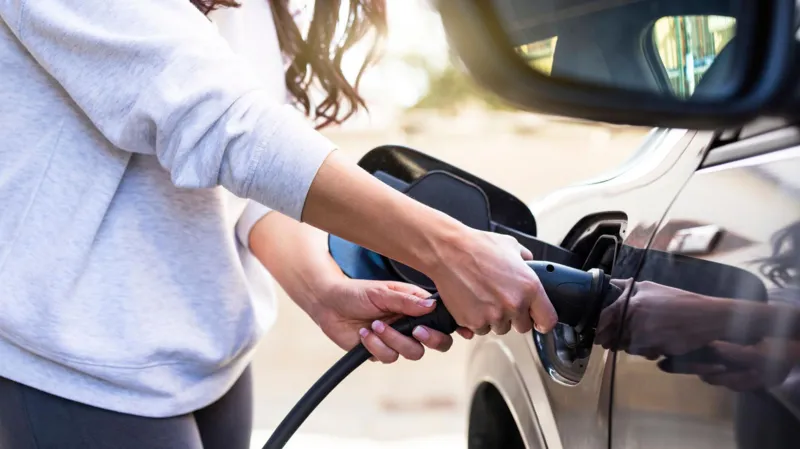Business
Global South Calls for $5 Trillion in Climate Reparations

Why the Global South is owed $5 trillion in climate reparations?
By Lidy Nacpil
The superstorms, floods, and heat waves of 2024 have been deadly for people and communities worldwide. Losses and damages have been especially heavy for us in the Global South, who are most endangered by the climate crisis despite contributing the least to global emissions. We urge the world’s leading historical emitters to pay the Global South at least $5 trillion a year in climate finance as part of the reparations for the chaos they’ve unleashed on the world’s most vulnerable people.
2024 has been a landmark year for the climate crisis. For the first time, the average global temperature stayed 1.5 degrees above pre-industrial levels for 12 months in a row. In the Philippines, extreme heat reached 47 degrees Celsius in April, prompting school closures and the collapse of power grids. In southern Pakistan, 568 dead bodies were collected over six days amid a heatwave in June. Most recently, catastrophic floods in Bangladesh have left 1.27 million families stranded without access to shelter, food, and clean water.
Global North nations are responsible for 50 percent of all planet-warming greenhouse gases in the earth’s atmosphere despite making up only 12 percent of the global population. For centuries, industrialization via fossil fuels has enriched these nations, their elites, and their corporations while condemning the people of the Global South to displacement and dispossession. For their role in causing the climate crisis, the world’s leading historical emitters owe the Global South a climate debt, and part of the reparations for this debt is the payment of climate finance to the Global South.
Wealthy nations are not only obligated to cut their carbon emissions as soon as possible and reach zero domestically by 2035, but their accumulated historical emissions are so massive that their fair shares of mitigation actions include covering a large part of the costs of a fossil fuel phaseout and a just transition in the Global South. Further, they must also pay for the harm and destruction the climate crisis has inflicted on the Global South.
Global North governments have been shamelessly evading their climate finance obligations for decades. After failing to deliver their miserly target of 100 billion dollars a year–and confronted with an annual climate finance needs estimate of several trillion–they are brazenly shifting the responsibility to Global South countries by calling for “burden-sharing” and “expanding the contributor base.” They repeat the mantra they use in development finance discourse–”the key is to unlock private finance and investments”–and push for incentivizing private capital by guaranteeing profits from climate investments.
In response to the demand for reparations, the chief climate negotiator of the United States in 2009 argued that US citizens today shouldn’t be held accountable for the actions of their ancestors. To be clear, we are not asking the ordinary citizens of the U.S. and other rich countries to shoulder the reparations owed us by their elites, corporations, and governments. Their governments can raise funds for reparations by taxing the polluters and profiteers, stopping tax abuses of big corporations, ending illicit financial flows, and shifting public spending away from fossil fuels, military operations, and the military-industrial complex.
The climate debt owed by rich countries is so enormous as to be incalculable. After all, how can governments fully compensate for all the lives lost and livelihoods ruined? Even if the Global South can never be fully compensated for the damage done, Global North governments should start by paying an amount that covers the costs of mitigation, adaptation, just transition, and loss and damage in the South.
Based on current and projected costs of mitigation, adaptation, just transition, and loss and damage, fair reparations come down to a payment of at least $5 trillion annually to the Global South. Since the $5 trillion is a form of reparations, it is neither aid nor charity and should not be in the form of loans. The yearly $5 trillion should be public, non-debt-creating, and conditionality-free finance and channeled through democratic and transparent multilateral financial mechanisms.
Business
An AI started ‘tasting’ colours and shapes. That is more human than you might think

The brain often blurs the senses – a fact that marketers often use in the design of food packaging. And AIs appear to do the same.
What is the flavour of a pink sphere? And what is the sound of a Sauvignon Blanc?
Such questions may sound ridiculous, but a huge body of literature shows us that the human brain naturally merges sensory experiences. We may not be conscious of the phenomenon, but we associate different colours, shapes and sounds with different flavours in ways that can subtly shape our perceptual experience, for example.
The colour of our glass, or music playing in the background of a bar, can determine how sweet or musky a wine tastes, for instance. “This cross talk between the senses is happening almost on an ongoing basis all the time,” explains Carlos Velasco at the BI Norwegian Business School in Oslo, Norway. In extreme cases it can manifest in a blurred sensory experience for some people where words might trigger specific tastes or music produces a riot of colour – something known as synaesthesia.
And while the idea that you can “taste” a colour or sound may seem absurd enough, Velasco’s latest research suggests that generative artificial intelligence systems may also do this too. As with all AI algorithms, this is largely a reflection of biases in the data they were trained on, so they are perhaps just highlighting how common these associations may actually be. But Velasco and his colleagues hope to use this fact to find many other ways to hack human senses.
Business
Car industry consulted over 2030 petrol and diesel ban

The UK motor industry is being consulted over how the phasing-out of new petrol and diesel cars by 2030 will work, the government has announced.
The ban on sales of these vehicles had been extended to 2035 under the previous Conservative government but Labour said it would restore the 2030 deadline in its election manifesto.
Transport Secretary Heidi Alexander is now seeking views from automotive and charging experts to “restore clarity” on how to deliver the ban.
Car industry leaders have warned drivers were not switching to electric vehicles at the rate needed to meet the deadline due to the cost of buying the cars privately and charging point infrastructure.
Business
Cadbury loses royal warrant after 170 years

Chocolate maker Cadbury has been dropped from the list of royal warrants for the first time in 170 years.
The Birmingham-based chocolatier was awarded its first royal warrant as chocolate and cocoa manufacturers by Queen Victoria in 1854, but it has lost its royal endorsement under King Charles.
Cadbury’s US owners, Mondelez International, said it was disappointed to have been stripped of its warrant.
The King has granted royal warrants to 386 companies that previously held warrants from Queen Elizabeth II, including John Lewis, Heinz and Nestle.
-

 Entertainment4 months ago
Entertainment4 months agoEarthquake scientists are learning warning signs of ‘The Big One.’ When should they tell the public?
-

 International4 months ago
International4 months agoTarar accuses Imran Khan of conspiring with Faiz Hameed to destabilise Pakistan
-

 International2 months ago
International2 months agoPTI Announces Not to Boycott New Committees
-

 Business3 months ago
Business3 months agoMajor Corruption Scandal Uncovered at WASA Multan: Rs1.5 Billion Embezzlement Exposed
-

 Business4 months ago
Business4 months agoThe Impact of QR Codes on Traditional Advertising
-

 Business4 months ago
Business4 months agoThe Benefits and Problems of International Trade in the Context of Global Crisis
-

 Business4 months ago
Business4 months agoFraud by Pakistani Firm Sparks Outrage in Business Community; Concerns Rise Over International Investment
-

 Business2 months ago
Business2 months agoHigh Court Blocks MDCAT Merit List Amid Controversy Over Exam Error







